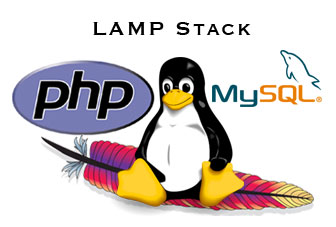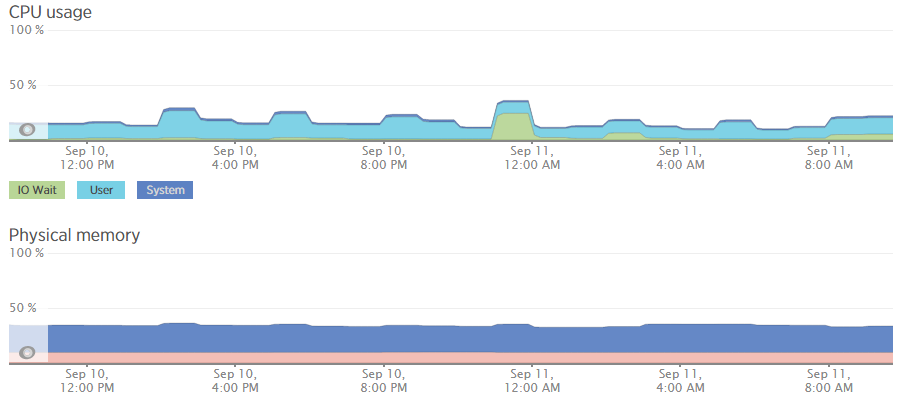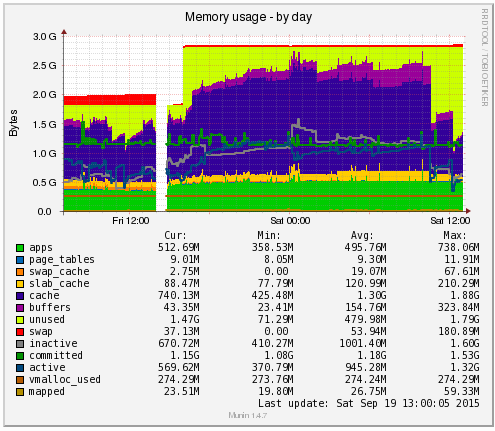Really Simple Guide to Web Servers
Not all web servers are the same…Your web server, the place where your website lives, is the cornerstone of your digital presence which is why it is essential to build solid foundations to allow your business to grow.
Web servers, the place where your website actually lives, are often a bit of a mystery to many businesses yet they shouldn’t be. With many web hosting companies always selling to the IT crowd and competing purely on price, it is no wonder that there are so many options available for businesses, which often is a price based decision. As we have wrote about previously though, you have to ask yourself, are your suppliers adding value to your business or costing you money?
With web servers, you should never simply look at the price you are paying and we would always recommend steering well clear of the cheapest option. With web servers and the support that comes with this, quite simply, you get what you pay for.
Selecting the right web server technology for your business is hugely important as this can either allow you to focus your time and energy on growing your business, or simply consume your time managing your web server when it should just be working. This again comes down to selecting the right company to be working with and the right digital agency who understands your needs as a business.
What are web servers?
Ok so before we jump into web servers, let’s just take this back a notch first. Many people believe that your domain name is your website. It isn’t. Your domain name is the equivalent of a signpost, your domain name points to where your website lives. Just as your phone number is a signpost to the phone that rings in your office. This is a bit of an over simplification here but it will do for the purposes of this guide. Where the signpost points is your web server, just a normal computer like the one you are reading this guide on. Well kind of. It’s got a bit more oomph than your personal computer and it is part of an enormous system sitting within a data centre somewhere in the world which is optimised towards running websites and digital technologies.

Data centres are hugely powerful machines all connected together into a single system that can be managed with software technology. For example you could ask this software to “create me a web server with 2 x CPUs, 2GB of Ram, 100GB of data storage”… and many other options including what software should be installed on this web server. This setup provides enormous flexibility for businesses to simply select exactly what they require from their web server and start from here with a fully customised solution for their business needs. You could refer to this as cloud technology, but we don’t particularly like that term as everything on the internet could be classified as cloud based technology.
The simplest way to think of a web server is to think of it just as another computer which is designed specifically to power your websites. Your web server is where the actual files and databases live that power your website. With your website being at the centre of your business it is essential that you make the right choice so your web server technology is capable of your needs now and is capable of growing with you as your business develops. For example, here are Google’s web servers which power the services you use on a daily basis;

Types of web servers
Not all web servers are the same, just as not all cars are the same. You can purchase budget web servers and high end web servers at all price points and for all sizes of businesses. It is no longer the case that high end web servers are restricted to those multinational organisations that can afford them. By tapping into the resources of data centres you can have the best of both worlds when working with the right company, a high end web server at an affordable price.
Whenever you are in the process of reviewing web servers you are presented with an enormous amount of choice which can be very confusing unless you know exactly what you are looking for. Should you choose an open shared server, a client-based shared server, a virtual private server also known as a VPS, a dedicated server, a collocated server or something in between? Then once you have selected this, what server specification do you require in terms of processing power, RAM and hard drive storage.
Some web hosting companies will restrict your web server based on the monthly bandwidth you will use, others based on the number of visits your website will receive per month and a whole host of other restrictions. Then you need to select what technology you require on your web server, commonly referred to as your technology stack which is often LAMP, Linux, Apache, MySQL and PHP. Then what about any other software that is required such as administrator control panels, unique integrations or specific technology required to work on your website?

Image Source: http://www.adminempire.com/how-to-install-lamp-stack-on-arch-linux/
Then if you manage to get this far, you then need to think about ongoing maintenance and security as many web hosting companies will leave that up to you to manage yourself. Most web hosting packages come with zero support attached which is fine if you are a technical wizard, but this is unlikely to be the case if you are reading this guide. Yes, your hardware will be fixed if things go wrong but what about the software, this is your responsibility often which means that you need to have the technical capabilities to manage and improve this on an on-going basis. Or just let us handle all of that for you…
We haven’t even touched on backups, automated security patches or hacking protection either. Quite simply, web servers and web hosting is a minefield which confuses most businesses. You don’t need to be able to become a technical server engineer, but as a business owner you need to understand how your web server works as this is what is often driving the revenue through your business. So let’s look to clear up a few of the misconceptions. As always, if you have any specific queries regarding web hosting, then get in touch and we’ll talk you through the options available and recommend a solution that is right for your business needs.
Shared Hosting
Shared web hosting means that your website is sitting on the same web server as many other websites. Technically speaking, this is often the case anyway when it comes to data centres although the difference being that with shared hosting, another website hosted on the same account can have an impact on your website, even if you don’t know who they are.
For example, if your-website.com is hosted on a shared web server with another-website.com, and another-website.com is either taking more than their fair share of server resources or is running a slightly shady business and Google decides to look negatively upon this server IP address, then this could impact your-website.com without you even knowing until you realise your website is offline or blacklisted by Google. Often shared hosting packages are the extreme budget end of the spectrum, meaning that if you purchase this from a hosting-only company then your website could be hosted on the same server as absolutely anyone else which naturally comes with risks associated with this.

What you tend to find with shared hosting packages is that you cannot customise the technology stack that you need. You simply have to stick with what is available and make your solutions fit with the technology available to you. For many starter websites this may not present much of a problem on first glance, although it is guaranteed to cause problems later down the line. You may also find with certain shared server setups that you will not have your own FTP login details, your own SSH (Secure Shell) login details and more which could restrict how much you can or can’t do with your website.
This being said, shared servers can also be an extremely efficient way of running your website when this is managed well. For example, many of our smaller clients run their websites from one of our shared servers. The difference being is that we know exactly who everyone is and most importantly, what technology they are running and we make sure that every website hosted meets our strict minimum standards to ensure performance from other websites impacting your website is kept to a minimum. From our point of view, this isn’t a shared server, this is our server. For our smaller client’s point of view, this is a managed shared server which they can rely on.
Cloud Based Virtual Private Servers (VPS)
Virtual Private Servers, also known as a VPS, is the step up from shares servers. A virtual private server is just that, it is part of a larger web server generally within a data centre which allows you to specifically calculate the size of server you would like to use and the data centre does all of the re-organising automatically. Generally speaking, a virtual private server would start out at a minimum of 1GB of RAM, 1 CPU and some hard drive space.
Depending on your business needs, you could either opt for your own virtual private server which is limited for just your own website which costs more or you could look to utilise one of our scalable virtual private servers which hosts our client websites which is more affordable as outlined above. Again, technically speaking, one of our virtual private servers would be classified as a shared host from your perspective as there are multiple client websites hosted on the same server. The key difference being is that every client has their own unique logins which restricts their access to only their files and settings plus we have full control which websites we choose to host on our virtual private servers and we have very strict requirements for what we will and won’t accept.
We only host client websites and have an extremely strict policy in place which means that we know the businesses whose websites are hosted and actively work with them to optimise their website performance. This ensures that there are no bad neighbours on the webserver which could be causing you problems. That being said, this does still mean that your website could be impacted by other websites on the server which is why we have strict security protocols in place along with server monitoring technology which allows us to manage the server effectively.

Going beyond this, you could always select to have your own virtual private server which means that the entire server resources are dedicated to your own website or even look at a fully dedicated server.
Cloud based Virtual Private Servers give you the maximum flexibility without the enormous costs. Simply increase the server resources as is needed as your website grows. Let’s look at how this differs from dedicated servers below though.
Dedicated servers
In comparison to virtual private servers, dedicated servers are at the top level and come with the price tag that you can imagine. The benefit to having a dedicated web server opposed to a virtual private server is that this is a single or set of servers under your control which means that you can manage this server as you see fit.
While on many virtual private servers you can manage a lot of the software that is installed which is perfect for most companies, there is a limit to this which you may eventually hit if you have custom requirements or as your website traffic starts to grow. Quite simply, dedicated servers are much higher performing than Virtual Private Servers. Making the leap from a virtual private server to a dedicated server is a significant thing to do and would only be recommended for companies who have the resources to manage the server including the technical knowhow and skills. As a guideline, if you are an ecommerce website turning over in the region of £100,000 per annum or more through your website, you should probably have your own dedicated server.
Managing your own dedicated web server should not be a decision you take lightly though. Web servers are extremely complex machines which requires a specialised skill set that has been developed over a number of years. Get this wrong and your high end dedicated server will cost you more time and money managing this than you are gaining from. Generally speaking, you should only be thinking about your own dedicated server if you are a larger business who has custom requirements where website performance is key.
Which is right
It depends. Talk to us. There is no hard and fast rule when it comes to web servers and which is the right decision for different businesses. Every single business is unique and everyone has a different price point. Thankfully by talking to us we can help guide you through the maze of web server technologies and advise you on which option is right for you now and as your business grows.
We offer every type of web hosting package outlined above which can be fully customised for your needs thanks to our hosting provider in the background managing our web servers for us. This allows us to spend time working with businesses like yourself to recommend the right solution for your needs.
Every hosting package comes with its own levels of support, maintenance and security which is either managed by yourself or managed by us. If web hosting technologies are getting you in a bit of a muddle, then get in touch and we can talk you through which option is most suitable.
Server Uptime
Web servers are highly tuned machines designed for running websites. Although just like any computer, they are prone to problems. The different being that these problems could be caused by external sources such as if your website was under a Distributed Denial of Service Attack (DDoS) which essentially floods the web server which eats up all of the resources and causes it to crash. Without the correct protection in place and monitoring technologies you will be left in the dark about what is actually happening to your web server at any point in time. Diagnosing a problem is the first step in putting in place a solution that is designed to prevent this again in the future. That being said, no system is perfect and you should not expect your system to be perfect either unless you are a large brand with deep pockets.
Support
Something to remember when researching web hosting companies. Cheap web servers often do not come with any kind of support, so unless you’re a server administrator, good luck managing this on your own. Web servers and hosting technologies are extremely specialised and take a lot of know-how to manage efficiently. As we provide web hosting to our clients, this naturally comes with the relevant support required as part of this which you will not find in many other places.
Let us take your headache away from web hosting technologies so you can focus on what you’re good at, running and growing your business.
Hacking Prevention
We wouldn’t be able to talk about a Really Simple Guide to Web Servers without talking about hacking prevention. The realities of the internet are quite grim and this can have a significant impact on your website. Many business owners believe that they will never be a target for hackers and they couldn’t be further from the truth. The reality is that absolutely any website can become the target for attacks, whether this is an attack to try and hack into your website or an attack known as a Distributed Denial of Service attack (DDoS) which is designed to crash your web server and take your website offline. We will be covering the complexities of hacking prevention in another guide.
For the purposes of this guide, suffice to say that no web server on the planet is 100% safe from being taken offline through various methods of hacking. Particularly smaller businesses whose budgets are limited for server technology. You cannot simply expect the performance that you see on Facebook and Google when paying a small monthly fee for web hosting technologies. Organisations of this size have invested hundreds of millions of pounds in their servers, technologies and infrastructure so you can have a seamless experience and even still, websites including Google, the BBC and Twitter have been known to go offline now and again. Your web server is no different and the amount of time your website is offline will be in direct proportion to how little money you are spending each month. Expecting 100% uptime on your web server when spending as little as £X00’s per month is simply not going to happen. Our hosting partnership gives us access to a team of over 200 people with a dedicated team of 9 behind us in addition to the skills of the staff at Contrado Digital and being able to boast an average of 99.76% uptime over a 4 month period is quite simply second to none and is something we are extremely proud of and quite happily share these figures;

As mentioned, web server technologies and management is an extremely specialised field requiring constant monitoring, logging and improvements. With the range of websites, technologies and systems hosted, it is no wonder that many businesses simply choose to ignore this key aspect as it is a confusing area. Hopefully this guide has cleared up a few of the differences for how web servers work and the differences between them. As a final piece of simplicity, you will be somewhere along the following journey;
Shared Server > Virtual Private Server > Dedicated Server > Server Clusters & Content Distribution Networks
At every stage above, you are going to require the correct server monitoring technology, skills and expertise in the background to be able to work with this effectively. Thankfully we have experience throughout the range and can advise accordingly on what you need for your business.
